第60章 Building Up a Magazine (4)
What attracted Bok immensely to Mr.Curtis's methods was their perfect simplicity and directness.He believed absolutely in the final outcome of his proposition: where others saw mist and failure ahead, he saw clear weather and the port of success.Never did he waver: never did he deflect from his course.He knew no path save the direct one that led straight to success, and, through his eyes, he made Bok see it with equal clarity until Bok wondered why others could not see it.But they could not.Cyrus Curtis would never be able, they said, to come out from under the load he had piled up.Where they differed from Mr.Curtis was in their lack of vision: they could not see what he saw!
It has been said that Mr.Curtis banished patent-medicine advertisements from his magazine only when he could afford to do so.That is not true, as a simple incident will show.In the early days, he and Bok were opening the mail one Friday full of anxiety because the pay-roll was due that evening, and there was not enough money in the bank to meet it.
From one of the letters dropped a certified check for five figures for a contract equal to five pages in the magazine.It was a welcome sight, for it meant an easy meeting of the pay-roll for that week and two succeeding weeks.But the check was from a manufacturing patent-medicine company.Without a moment's hesitation, Mr.Curtis slipped it back into the envelope, saying: "Of course, that we can't take." He returned the check, never gave the matter a second thought, and went out and borrowed more money to meet his pay-roll!
With all respect to American publishers, there are very few who could have done this--or indeed, would do it to-day, under similar conditions--particularly in that day when it was the custom for all magazines to accept patent-medicine advertising; The Ladies' Home Journal was practically the only publication of standing in the United States refusing that class of business!
Bok now saw advertising done on a large scale by a man who believed in plenty of white space surrounding the announcement in the advertisement.
He paid Mr.Howells $10,000 for his autobiography, and Mr.Curtis spent $50,000 in advertising it."It is not expense," he would explain to Bok, "it is investment.We are investing in a trade-mark.It will all come back in time." And when the first $100,000 did not come back as Mr.
Curtis figured, he would send another $100,000 after it, and then both came back.
Bok's experience in advertisement writing was now to stand him in excellent stead.He wrote all the advertisements and from that day to the day of his retirement, practically every advertisement of the magazine was written by him.
Mr.Curtis believed that the editor should write the advertisements of a magazine's articles."You are the one who knows them, what is in them and your purpose," he said to Bok, who keenly enjoyed this advertisement writing.He put less and less in his advertisements.Mr.Curtis made them larger and larger in the space which they occupied in the media used.In this way The Ladies' Home Journal advertisements became distinctive for their use of white space, and as the advertising world began to say: "You can't miss them." Only one feature was advertised at one time, but the "feature" was always carefully selected for its wide popular appeal, and then Mr.Curtis spared no expense to advertise it abundantly.As much as $400,000 was spent in one year in advertising only a few features--a gigantic sum in those days, approached by no other periodical.But Mr.Curtis believed in showing the advertising world that he was willing to take his own medicine.
Naturally, such a campaign of publicity announcing the most popular attractions offered by any magazine of the day had but one effect: the circulation leaped forward by bounds, and the advertising columns of the magazine rapidly filled up.
The success of The Ladies' Home Journal began to look like an assured fact, even to the most sceptical.
As a matter of fact, it was only at its beginning, as both publisher and editor knew.But they desired to fill the particular field of the magazine so quickly and fully that there would be small room for competition.The woman's magazine field was to belong to them!